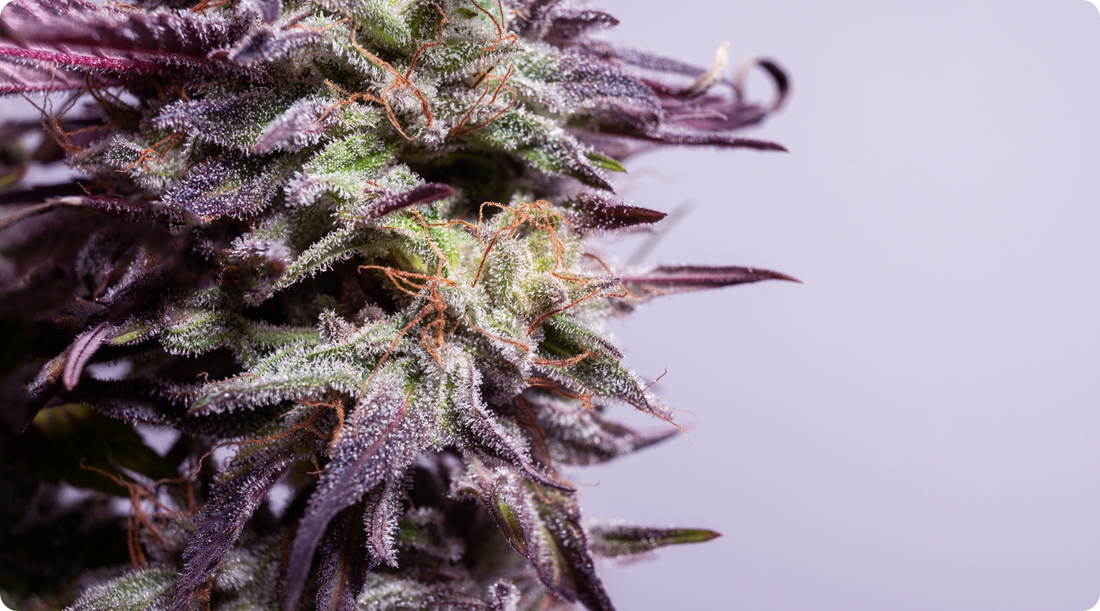
Delta-8 THC vs. Delta-9 THC: What’s the Difference?
Share
The world of cannabinoids is full of variety, and two compounds that have gained significant attention in recent years are Delta-8 THC and Delta-9 THC. While both are forms of THC, they differ in chemical structure, effects, legality, and uses. Understanding the differences between these two cannabinoids can help you make informed decisions about which one may be better suited to your needs.
Chemical Structure
At the molecular level, Delta-8 THC and Delta-9 THC are quite similar. Both cannabinoids have a double bond in their structure, but the placement of this bond differs:
- Delta-8 THC: The double bond is located on the 8th carbon chain in its molecular structure.
- Delta-9 THC: The double bond is on the 9th carbon chain, which makes it slightly more reactive and potent compared to Delta-8.
This small structural difference significantly affects how each compound interacts with the body’s endocannabinoid system (ECS), particularly with the CB1 receptors in the brain.
Effects
The most noticeable distinction between Delta-8 THC and Delta-9 THC lies in their effects on the body and mind:
-
Delta-9 THC: Known for its strong psychoactive effects, Delta-9 THC produces the euphoric “high” that most people associate with cannabis. Users often report intense feelings of euphoria, altered sensory perception, and sometimes, anxiety or paranoia at higher doses.
-
Delta-8 THC: While Delta-8 THC is also psychoactive, its effects are generally milder and less intense than Delta-9 THC. Users report a more relaxed and clear-headed high, with less risk of anxiety or paranoia. Delta-8 is often described as offering a more subtle, manageable high, making it appealing to those seeking therapeutic benefits without the overwhelming effects of Delta-9.
Legality
The legal status of Delta-8 THC and Delta-9 THC is another key distinction between the two:
-
Delta-9 THC: Delta-9 THC is federally illegal in the United States when derived from cannabis with a concentration greater than 0.3% THC. However, it is legal in states where medical or recreational marijuana use has been legalized. Each state has its own laws governing the sale and use of Delta-9 THC.
-
Delta-8 THC: Delta-8 THC occupies a gray area in U.S. federal law. It is legal on a federal level when derived from hemp, thanks to the 2018 Farm Bill, which legalized hemp and its derivatives containing less than 0.3% Delta-9 THC. However, some states have moved to specifically ban Delta-8 THC, so its legality varies depending on your location.
Uses
Both Delta-8 THC and Delta-9 THC offer potential therapeutic benefits, but they are often used for different purposes due to their varying effects:
-
Delta-9 THC: Known for its strong pain-relieving, anti-nausea, and appetite-stimulating properties, Delta-9 THC is often prescribed for conditions like chronic pain, chemotherapy-induced nausea, and appetite loss. It is also used recreationally due to its potent psychoactive effects.
-
Delta-8 THC: Delta-8 THC is becoming popular for its milder psychoactive effects and potential benefits for anxiety, stress relief, and pain management. It provides a calmer high, making it a good option for those looking to experience the therapeutic effects of THC without intense intoxication.
Summary of Differences
| Feature | Delta-8 THC | Delta-9 THC |
|---|---|---|
| Chemical Structure | Double bond on the 8th carbon chain | Double bond on the 9th carbon chain |
| Psychoactive Effects | Milder, less intense, calming | Strong, intense, euphoric |
| Legality | Federally legal if derived from hemp (but banned in some states) | Federally illegal unless in legalized states |
| Common Uses | Anxiety relief, stress, mild pain | Pain relief, appetite stimulation, nausea reduction |
| Risk of Side Effects | Lower (less anxiety or paranoia) | Higher (more likely to cause anxiety or paranoia) |
Conclusion
Both Delta-8 THC and Delta-9 THC are valuable cannabinoids with similar origins but distinct effects. Delta-8 THC offers a milder, more approachable experience with fewer side effects, making it an attractive option for those seeking therapeutic benefits without the overwhelming high of Delta-9 THC. Meanwhile, Delta-9 THC remains the go-to for those looking for a more potent psychoactive experience and stronger medicinal effects.
When considering which to use, it’s essential to be aware of the legality in your area and choose the one that best suits your needs.
